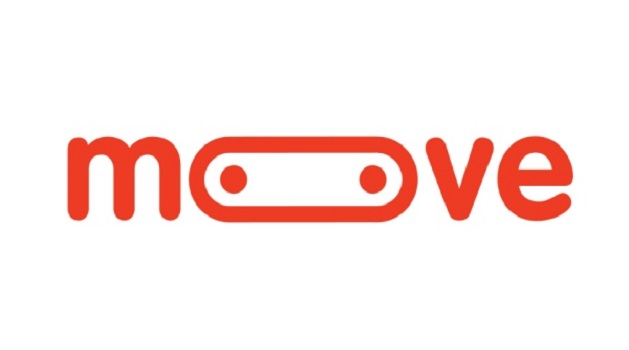General News
Technology Boosts SAHCOL on EU ACC3 Validation

The European Union (EU) has designated the Skyway Aviation Handling Company Limited (SAHCOL) as a 3rd country European Union Aviation Security Validated Regulated Agent.
The validation certificate was issued to SAHCOL after an onsite confirmation of the implementations of the security controls, which were certified to be in compliance with the objectives of EU/EEA bound air cargo and air mail.
According to the EU regulations 173/2012 and 1082/2012, all air cargo and air mail entering the European Union from Third Countries Airports, otherwise called ACC3 should be validated and approved by the appropriate authority from a European Union state to be able to transport secured cargo to the European Union.
ACC3’s are obliged under EU regulation EU1082 to ensure that cargo and mail destined for the EU is screened or comes from a secure supply chain. From 1st July 2014, the EU regulations state that ACC3’s must be in possession of security verifications of their cargo and mail operations at the relevant non-EU airports.
This verification activity must be undertaken by an Independent Validator, certified by an EU regulator.
By this validation, all customers using the SAHCOL warehouse are ensured of reliable security verification of all air cargo & mail operations bound for countries under the European Union.
Mr. Basil agboarumi, General manager, Corporate Communications at SAHCOL, in a statement confirmed that the new face of SAHCOL has experienced massive deployment of modern state-of-the-art equipment and facilities, construction of a modern Corporate Headquarter, construction of a first class fully automated Customs Bounded Warehouse and Building, increase in quality trained manpower, International Certifications, increase in clientele base, and many more.
SAHCOL is an Aviation Ground Handling Company (100 percent owned by the SIFAX Group), which has brought its experience to bear in the day to day performance of its duties, which includes Passenger Handling, Ramp Handling, Cargo Handling/Warehousing, Aviation Security, Baggage Reconciliation, Crew Bus and Executive Lounge Services, and other related Ground Handling Services; ensuring that Ground Handling Services to all clientele is executed in an efficient, speedy and safe manner, in line with international best practices, while also ensuring that the right tools are deployed.
General News
Cybervergent Selected as World Economic Forum’s 2025 Technology Pioneer Company

In affirmation of its global standing, Cybervergent, a Pan-African technology company that leverages artificial intelligence to transform how organisations manage risk, governance, privacy, and cybersecurity, has been selected as one of the World Economic Forum’s (WEF) Technology Pioneers for 2025—a global cohort spotlighting companies transforming industries through breakthrough technologies and responsible innovation.

The WEF, an international organisation committed to improving the state of the world through public-private collaboration, brings together global leaders to shape economic, technological, and societal agendas. Cybervergent now joins this global community.
The company is recognized for its innovative approach to building digital trust, reimagining how organisations manage cybersecurity, risk, privacy and governance.
Commenting on the company’s milestone, Adetokunbo Omotosho, CEO of Cybervergent, said, “I am honoured that Cybervergent has been named a Technology Pioneer by the World Economic Forum. This is more than an accolade — it’s a validation of our commitment to redefining cybersecurity, privacy, and risk management to build true digital trust.
“What makes this recognition even more meaningful is the fact that Cybervergent demonstrates innovation in AI and infrastructure can emerge from any region, challenging conventional perceptions.”
Some past recipients of the Technology Pioneer recognition, including Google, Spotify, and Airbnb have gone on to fundamentally reshape global industries.
As a member of the 2025 Technology Pioneers community, Cybervergent will be contributing to discussions shaping cybersecurity, AI, and cyber resilience across industries and the global digital economy.
General News
Moove Plans to Raise $1.2Bn Debt Round for US Autonomous Vehicle Expansion

Moove, an African mobility fintech startup, is on a quest to secure a $1.2 billion debt financing round to support the rollout of a fleet of autonomous vehicles.

This is in partnership with Alphabet Inc.’s Waymo in the United States, according to a Bloomberg report citing sources familiar with the matter.
The startup has since attracted backing, including from Uber Technologies Inc., and entered a strategic partnership with Waymo in December 2024 to provide financing for self-driving cars.
Ladi Delano, co-founder of Moove, noted that the company has a solid financial track record.
“Moove has built strong relationships with some of the world’s leading lenders. We have also fully repaid our first-ever debt facilities, which signals our maturity and marks a key milestone that demonstrates the strength of our platform as we enter the next phase of global autonomous-vehicle infrastructure deployment,” he said.
The round is reportedly oversubscribed, with strong participation from private credit firms and banks.
Waymo has also not made any official statement regarding the funding round. While final details are expected to be concluded in the coming weeks, the deal will mark a significant milestone for the firm as it ramps up its global ambitions.
Founded in 2020 by Nigerian entrepreneurs, Ladi Delano and Jide Odunsi, Moove began by providing vehicle financing for ride-hailing drivers in Africa’s largest cities.
General News
Firm Explores the Evolution of AI-powered Ransomware with Password-gated Capabilities

Kaspersky experts have revealed the inner workings of FunkSec — a ransomware group that illustrates the future of mass cybercrime: AI-powered, multifunctional, highly adaptive and operating on volume with ransoms as low as $10,000 to maximise profits.

Kaspersky’s Global Research and Analysis Team (GReAT) constantly monitors the ransomware threat landscape, where attacks continue to rise. According to the company’s latest State of Ransomware report, the share of users affected by ransomware attacks worldwide increased to 0.44% from 2023 to 2024, up by 0.02 percentage points.
While this percentage may appear modest compared to other cyber threats, it reflects the fact that attackers typically prioritise high-value targets rather than mass distribution, making each incident potentially devastating. Within this evolving landscape, FunkSec has emerged as a particularly concerning threat.
Active for less than a year since its emergence in late 2024, FunkSec has quickly surpassed many established actors by targeting government, technology, finance and education sectors. What sets FunkSec apart is its sophisticated technical architecture and AI-assisted development.
The group packages full-scale encryption and aggressive data exfiltration into a single Rust-based executable, capable of disabling over 50 processes on victim machines and equipped with self-cleanup features to evade defenses.
Beyond its core ransomware functionality, FunkSec has expanded its toolkit to include a password generator and a basic DDoS tool — both showing clear signs of code synthesis using large language models (LLMs).
FunkSec’s approach reflects the evolving landscape of mass cybercrime, combining advanced tools and tactics. Kaspersky’s GReAT experts highlight the key features that define their operations:
Password-Controlled functionality
GReAT experts discovered that FunkSec ransomware features a unique password-based mechanism that controls its operation modes. Without a password, the malware performs basic file encryption, while providing a password activates a more aggressive data exfiltration process in addition to encryption to steal sensitive data.
FunkSec packs full-scale encryption, local exfiltration and self-cleanup into a single Rust binary—without a side-loader or a companion script. That level of consolidation is uncommon and gives affiliates a plug-and-play tool they can deploy almost anywhere.
Use of AI in development
Code analysis shows that FunkSec is actively using generative artificial intelligence to create its tools. Many parts of the code seem to be automatically generated rather than manually written. Signs of this generic placeholder comments (such as “placeholder for actual check”) and technical inconsistencies, like commands for different operating systems that don’t align properly. Additionally, the presence of declared but unused functions—such as modules included upfront but never utilised — reflects how large language models combine multiple code snippets without pruning redundant elements.
“More and more, we see cybercriminals leveraging AI to develop malicious tools. Generative AI lowers barriers and accelerates malware creation, enabling cybercriminals to adapt their tactics faster.
By reducing the entry threshold, AI allows even less experienced attackers to quickly develop sophisticated malware at scale,” comments Marc Rivero, Lead Security Researcher at Kaspersky’s GReAT.
High-volume, low-ransom strategy
FunkSec demands unusually low ransom payments, sometimes as little as $10,000, and pairs this with the sale of stolen data at discounted prices to third parties. This strategy appears designed to enable a high volume of attacks, helping the group quickly establish its reputation within the cybercriminal underground. Unlike traditional ransomware groups that seek million-dollar ransoms, FunkSec employs a high-frequency, low-cost model — further underscoring its use of AI to streamline and scale operations.
Expands beyond ransomware
FunkSec has expanded its capabilities beyond the ransomware binary. Its dark leak site (DLS) hosts additional tools, including a Python-based password generator designed to support brute-force and password-spraying attacks, as well as a basic DDoS tool.
Advanced evasion
FunkSec employs advanced evasion techniques to avoid detection and complicate forensic analysis. The ransomware is capable of stopping over 50 processes and services to ensure thorough encryption of targeted files. Additionally, it includes a fallback mechanism to execute certain commands even if the user launching FunkSec lacks sufficient privileges.

 Telecom2 days ago
Telecom2 days agoMTN Nigeria Debuts Game-Changing CPaaS Platform at NextNow Forum

 News2 days ago
News2 days agoAMCON Confirms ₦100Bn Sale of Ibadan DisCo Amid Legal Disputes

 E-Financial2 days ago
E-Financial2 days agoNAICOM Issues New Licenses to SanlamAllianz Life, General Insurance

 E-Financial1 day ago
E-Financial1 day agoCourt Affirms NIBSS Authority to Manage BVN

 E-Financial2 days ago
E-Financial2 days agoGTCO to Become First Nigerian Bank to List on London Stock Exchange

 E-Business2 days ago
E-Business2 days agoDomain of Deception as Attackers Deploy Spyware Under Guise of Legal Threats

 Telecom1 day ago
Telecom1 day agoMTN, 9mobile Commence Ground-breaking National Infrastructure Partnership

 News2 days ago
News2 days agoDBI, Miva Open University Partner to Advance Digital Innovation, Education























